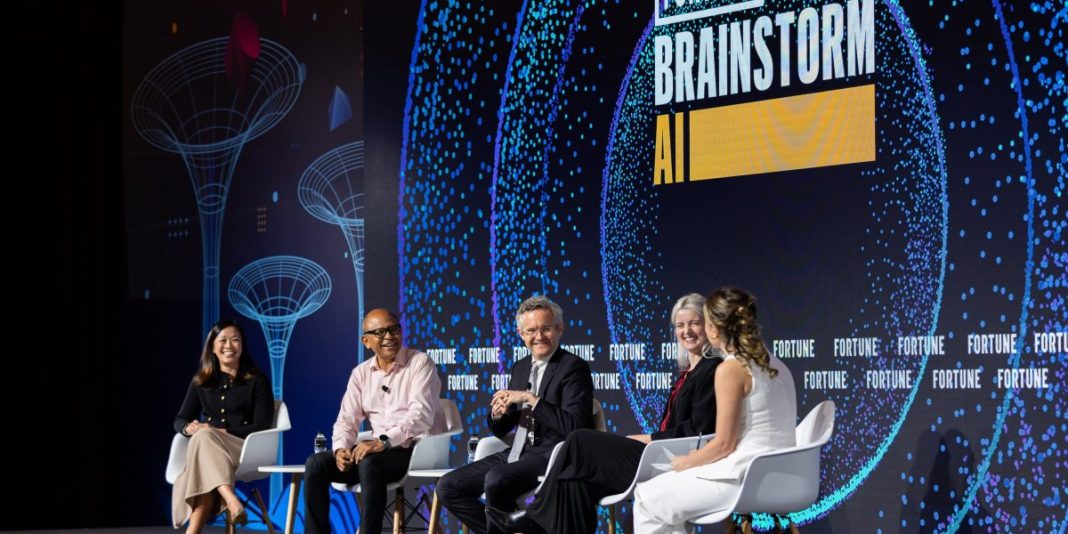The U.S. and China, the world’s largest and second-largest economies respectively, are currently the world leaders in A.I. research. Both superpowers also boast more companies and capital than anyone else.
But perhaps size doesn’t matter, and smaller countries like Singapore can keep pace in the race to adopt AI, experts said Tuesday at Fortune’s Brainstorm AI Singapore conference.
“It’s pretty clear from the outset that a country like Singapore could never compete with China and the U.S. in terms of scale,” said Simon Chesterman, vice provost at the National University of Singapore and a senior director at AI Singapore, an organization that aims to build an AI ecosystem in the Southeast Asia country.
But “if you can’t beat them on quantity, you can at least try to compete on quality,” Chesterman said, arguing that countries need to “make a virtue of your small size.”
Singapore is the third-highest economy on Tortoise Media’s global AI index, behind just China and the U.S. and ahead of larger economies like Germany and Japan.
The country’s core pillars are “infrastructure, talent and adoption,” said Serena Cesareo, a senior researcher at the London-based news organization.
In terms of land area, Singapore is smaller than New York City, and its size could help the government roll out its AI strategy more effectively.
That compactness can help “make industries more competitive, deliver government services better, and help citizens understand and interact with [AI] technology in a way that builds confidence and trust,” said Andrea Phua, senior director of the national AI group in Singapore’s Ministry of Digital Development and Information.
It’s not about “using AI for AI’s sake,” she said, but instead about using it properly, making Singaporean companies and people comfortable with using AI applications, and in turn promote innovation.
One way AI applications get better is by getting more users–and in turn getting more data.
Singapore’s focus is getting the entire workforce–not just machine learning engineers and data scientists–comfortable with AI, Shameek Kundu, a member of the Singapore government’s AI advisory council, said. He cited the Singapore Academy of Law, and its advice to lawyers on how to use generative AI, as an example.
Chesterman explained AI’s not just about the data, the computational power, or the hardware, but it’s also about investing in the talent to take advantage of AI developments.
He compared AI to previous technological revolutions like electricity. “Not everyone needs to be an electrician, but you need to know how to develop tools that will use electricity, or apply electricity in new ways,” Chesterman said.
CEO Daily provides key context for the news leaders need to know from across the world of business. Every weekday morning, more than 125,000 readers trust CEO Daily for insights about–and from inside–the C-suite. Subscribe Now.


